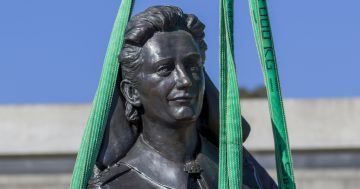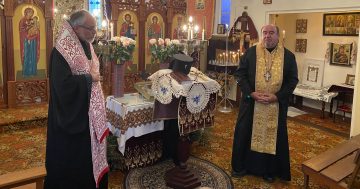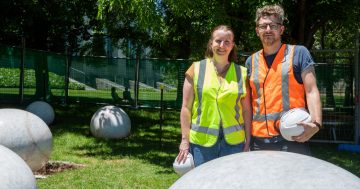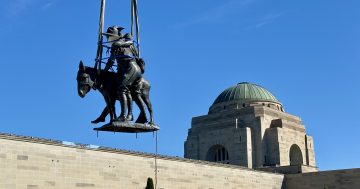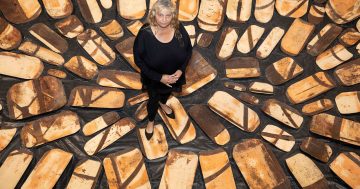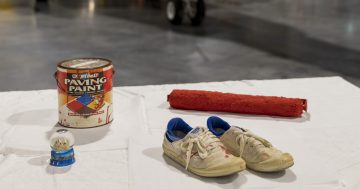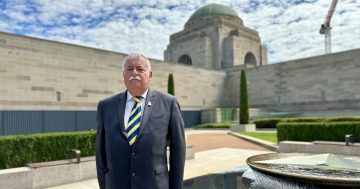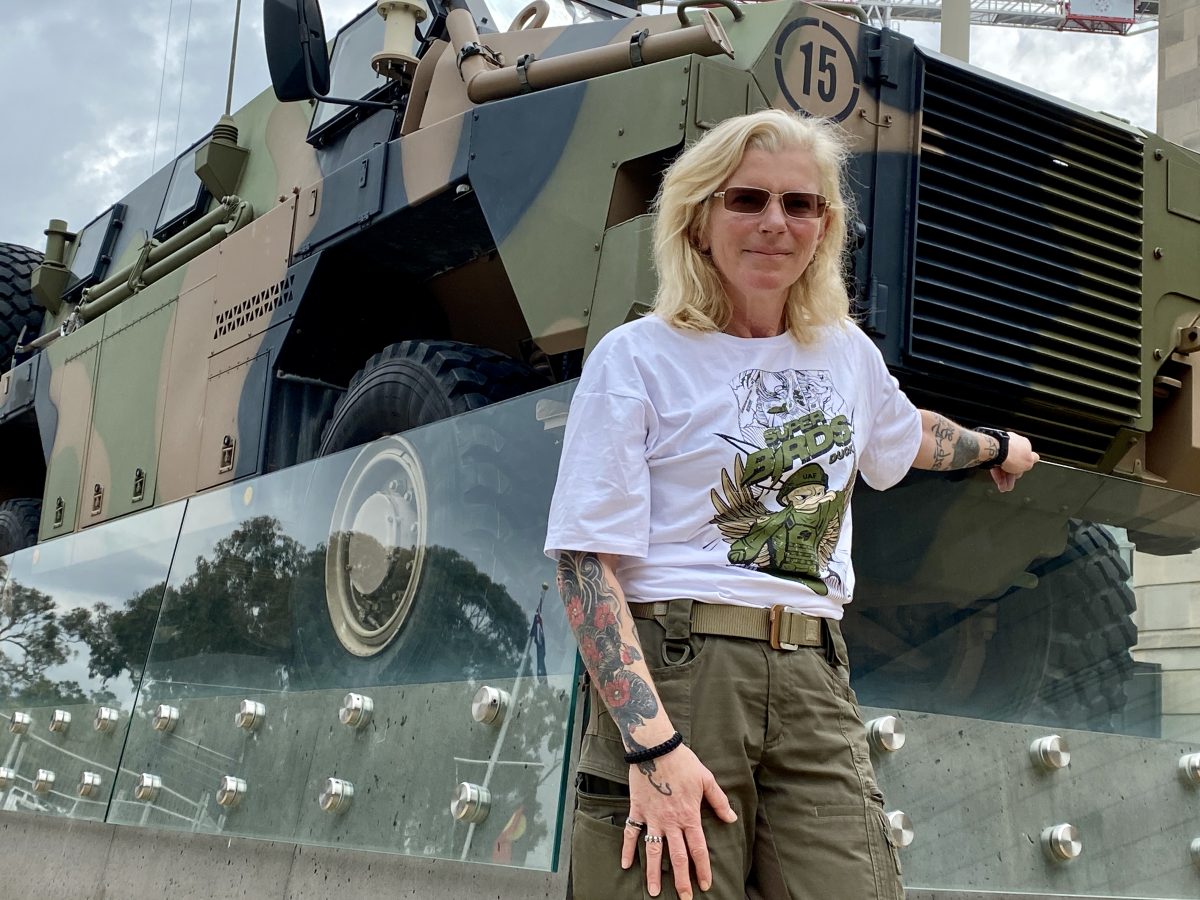
Former prisoner of war now a heroine in Ukraine, Yuliia “Taira” Paievska in front of the Bushmaster on display at the Australian War Memorial. Photos: Embassy of Ukraine.
If Ukraine were to have a face of hope, of courage, of survival, it would be that of Yuliia “Taira” Paievska – the woman who smuggled bodycam footage out of her homeland so the rest of the world could see what was really happening when Russia invaded.
The day after she gave the 256 GB of footage to Associated Press journalists, which was subsequently smuggled out of Ukraine, she was captured by pro-Russian forces.
For three months, she was held in captivity, during which she suffered torture and deprivation that she described as “beyond any comprehension of good or evil”.
In June last year, Ms Paievska was released in a prisoner exchange, announced by President Volodymyr Zelensky.
Since then, she has travelled the world as a symbol of bravery and sacrifice, advocating for an independent Ukraine.
In a private event at the Australian War Memorial this week, Ms Paievska laid a wreath in remembrance of Sergy Ilnystki, the former Invictus Games champion and Ukraine team captain who was killed defending his country, three weeks before the Games started.
Ukraine’s ambassador to Australia, Vasyl Myroshnychenko, who joined Ms Paievska at the private event in Canberra on Tuesday (28 November), said her visit was arranged by Australia’s Ukrainian community and Invictus Games organisers.
“We wanted to bring someone here who could share their experience and explain what it was like,” Mr Myroshnychenko said. “Someone who is a symbol of our fight.
“She is an inspiration to so many people, a great example of resilience, strength and stamina.
“She told me that the Games helped her recover from her Russian captivity, it helped her psychologically and had a major impact on her recovery.”
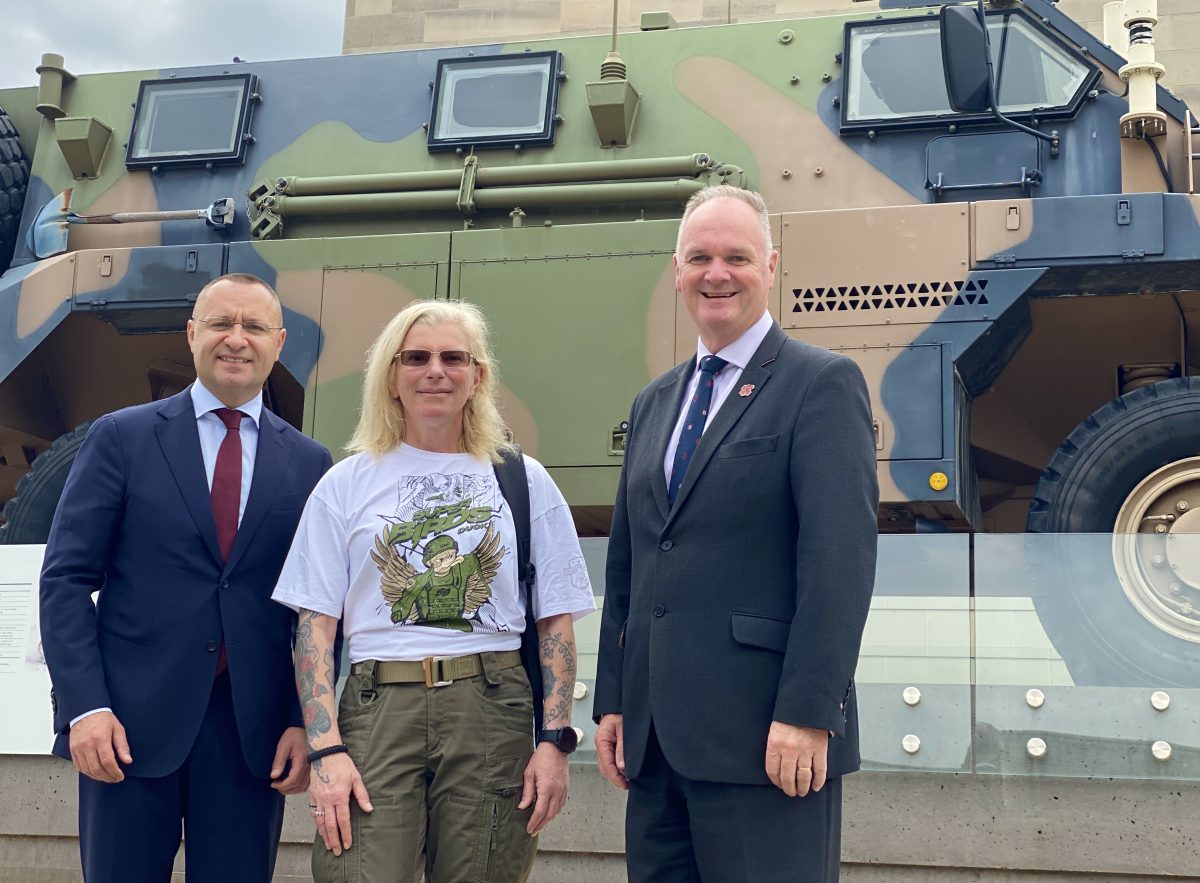
Ukrainian Ambassador to Australia Vasyl Myroshnychenko, Yuliia “Taira” Paievska, and Australian War Memorial director Matt Anderson in front of the Bushmaster.
Mr Myroshnychenko said the event in honour of Mr Ilnystkyi was held near the Bushmaster display at the War Memorial, adding that the vehicles had become a symbol of Australian support for the Ukraine war effort.
“The Bushmasters have saved many lives,” he said. “Australia has committed 120 for Ukraine, we already have 90 of them. Their speed, their mobility have been most efficient in helping to rescue people.
“As the war’s two-year mark looms in February, we want to thank Australia for its support,” he said.
Mr Myroshnychenko said aid from countries like Australia was still needed to “help protect Ukraine’s cities, save lives and work towards the nation’s recovery, especially as winter sets in. Ukraine is a vibrant, strong democracy and with Australia’s support, we know we can win the struggle against Russia’s lawless and brutal invasion”.












